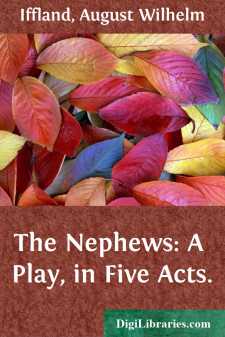Categories
- Antiques & Collectibles 13
- Architecture 36
- Art 48
- Bibles 22
- Biography & Autobiography 816
- Body, Mind & Spirit 145
- Business & Economics 28
- Children's Books 17
- Children's Fiction 14
- Computers 4
- Cooking 94
- Crafts & Hobbies 4
- Drama 346
- Education 58
- Family & Relationships 59
- Fiction 11834
- Foreign Language Study 3
- Games 19
- Gardening 17
- Health & Fitness 34
- History 1378
- House & Home 1
- Humor 147
- Juvenile Fiction 1873
- Juvenile Nonfiction 202
- Language Arts & Disciplines 89
- Law 16
- Literary Collections 686
- Literary Criticism 179
- Mathematics 13
- Medical 41
- Music 40
- Nature 179
- Non-Classifiable 1768
- Performing Arts 7
- Periodicals 1453
- Philosophy 66
- Photography 2
- Poetry 897
- Political Science 203
- Psychology 45
- Reference 154
- Religion 516
- Science 126
- Self-Help 85
- Social Science 82
- Sports & Recreation 34
- Study Aids 3
- Technology & Engineering 59
- Transportation 23
- Travel 463
- True Crime 29
August Wilhelm Iffland
August Wilhelm Iffland (1759–1814) was a German actor, playwright, and theater director, known for his significant contributions to German drama during the late 18th and early 19th centuries. He wrote over 50 plays, many of which focused on middle-class life and moral themes, with works like "Die Jäger" and "Die Mündel" becoming particularly popular. As a director of the National Theatre in Berlin, Iffland played a crucial role in shaping the theatrical standards of his time, emphasizing realism and detailed character development. He is also remembered for the "Iffland-Ring," a prestigious honor awarded to exceptional German-speaking actors.
Author's Books:
Sort by:
ACT I. A plain Tradesman's Room, with old fashioned Furniture. Master Clarenbach. (Busied with a design.) Clar. So!--there is my design, and I think it is a pretty good one. It will make a substantial building.--When I am gone, people will say, when they look at the pile, "Master Clarenbach was a man that knew what he was about." SCENE II. Enter Lewis. Lew. Deputy Clarenbach presents his...
more...
ACT I. SCENE I. At the Chancellor's House. COUNSELLOR FLEFFEL, LEWIS BROOK, at Breakfast. Enter a Servant. Counsellor (to the Servant). Take away. But, no—let it stand; my father may chuse some: is he returned? Servant. I'll enquire, Sir. [Exit Servant. Counsellor [rising and viewing himself]. We've made a long breakfast. Lewis. But you have eaten nothing. Counsellor. Why, my dear...
more...



